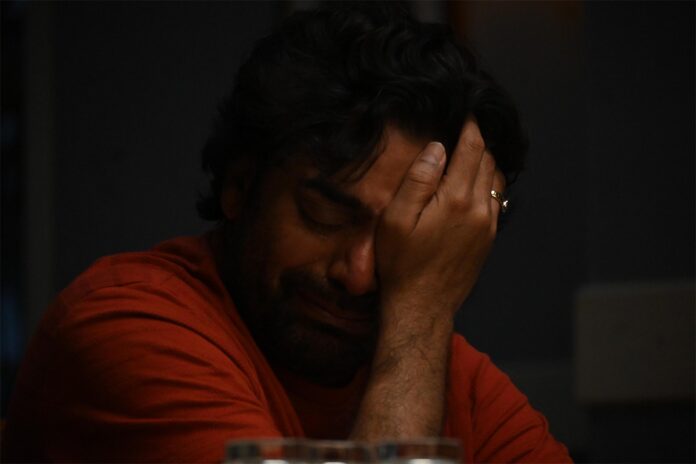Murder in Mahim, JioCinema’s new original series based on Jerry Pinto’s novel of the same name, is a crime thriller that tells the story of a brutal murder of a gay sex worker in a public toilet at Mumbai’s Mahim railway station. Starring popular character actions Vijay Raaz and Ashutosh Rana, the series blends conventional crime thriller narrative with social commentary, putting its performances front and centre of the unfolding investigation.
All through eight episodes, Raaz’s police inspector and Rana’s former journalist – both of whom are now estranged friends – try to solve the gruesome case in their own distinct ways. Through the course of the investigation, we are taken to gay clubs, queer parties, rallies, and the forbidden bylanes of Mumbai, where the bleak and alarming world of gay prostitution exists after dark. The series dives into the lives of sex workers, depicting their plight and persistence with discernible care.
While Murder in Mahim seems a bit overstretched and predictable with beaten plots, familiar loopholes and the heavy-handed social commentary at the beginning, it soon grows into an unmissable piece of art with powerful performances. If you’ll be a little patient with the series, at least till the third episode, you are in for a cinematic delight that takes up complex themes effortlessly.
![]()
Shivaji Satam in a still from Murder in Mahim
The show unfolds the various layers of homophobia and abuse, from offensive name-calling and outright prejudice-driven cruelty to honey-trapping crimes where queer people, who are being blackmailed, have nowhere to turn to for help, including the police. Murder in Mahim covers the engulfing impact of homophobia across classes; from penniless queers being forced into prostitution to even those positioned at powerful ranks, terrified of coming out of the closet, the series looks at the concerns of the LGBTQ community with a wide lens. Depiction of queer lives is also done with a natural tone and does not come off as forced, overly dramatic, or pompous.
There is a particular scene showing two lesbian lovers in a room panic when their parents, who still don’t know about their sexuality, come over unannounced. The reaction of all the characters is thankfully measured and innocent and the scene normalises queer lives.
However, Murder in Mahim also attempts to play it safe at some points, especially when Rana’s Peter Fernandes and his wife are shown to be uncomfortable with the possibility of their son being gay. Clueless as to what might be the “remedy” to this “condition,” in some scenes the couple comes off as a dummy model of what might be wrong with a parent of a queer child, only to grow into what an ideal parent should be like later.
However, the show isn’t just about homosexuality. Murder in Mahim also subtly takes on the conflicts and complexities of a father-son relationship. What a beautiful portrayal! It is so rare for the Indian film and television industry to pick up on this theme and do justice to it. Whether it is the estranged relationship between Vijay Raaz’s Shiva and his grumpy father, played by Shivaji Satam (of ACP Pradyuman fame from C.I.D) or Shiva and his teenage son, who are slowly drifting apart, the series handles the dynamic with tenderness. I could find myself smiling at so many scenes in the second half of the show, some of which evoked the amusing relationship between Amitabh Bachchan’s grumbling father and Deepika Padukone’s headstrong daughter in Piku.
There is a scene, which perhaps will sit with me for a long time, where a junior police constable finds his teenage son’s dirty magazines. One would expect admonition to follow, but the otherwise comical character sensibly handles the situation without pushing his son into a pit of guilt and shame. It’s a simple yet powerful scene that depicts the unsaid tenderness between a father and a son.
![]()
Vijay Raaz and Shivani Raghuvanshi in a still from Murder in Mahim
Murder in Mahim also takes a satirical stance against sensationalism-driven media and indifferent police officials, who conveniently distort facts before chewing away “brilliant news writeups” or “official statements” sans any reliable source of information, adding fuel to the already raging fire of homophobia. There is a scene where the press is seen accusing an old man of being a pedophilic, homophobic monster on flimsy ground. As the media inquisition piles on, the character helplessly observes angry protesters outside his house. The fictionalised scene isn’t too far from fact, underscoring several similar real-life incidents where news reporters conveniently brushed off ethics for clicks and views.
Even though Murder in Mahim has plenty of intense sequences that pick up on the smallest nuances of the human psyche and emotions, the makers have perfectly struck a balance with frequent comic relief to break the tension — often necessary for a film or show with a stark social message to appeal to the masses, who wouldn’t otherwise turn to or even have access to select cinema approved by the critics. The makers have made a decent attempt at conveying complex and important issues in an accessible and palatable manner, without compromising on the intricacies of the subject at hand.
Murder in Mahim does drag in the first few episodes, but with its moving storyline, powerful performances and brilliant cinematography, the series shines slowly but surely.
Source link


